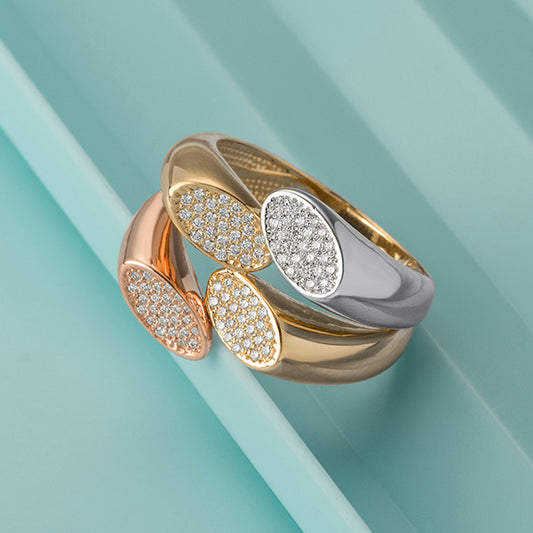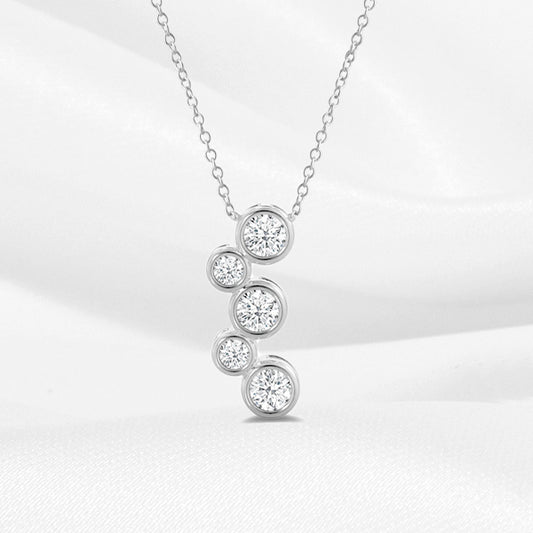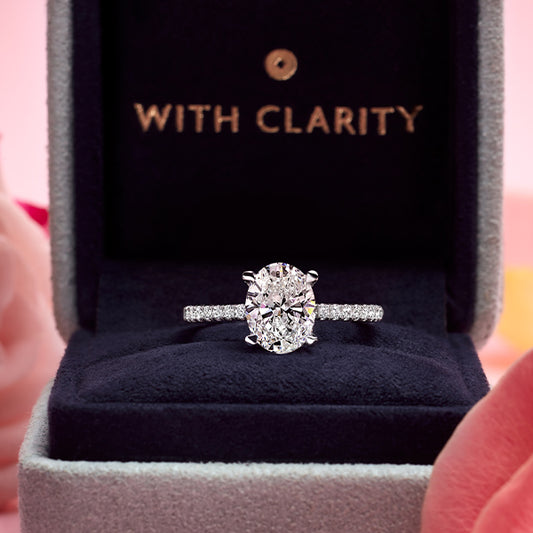G Color Diamonds: What Do They Look Like, and Are They Worth Buying?

It might sound like a brain-teaser: When is "diamond color" different than "colored diamonds"? The answer is always — it's one of the most fundamental things to know about diamond shopping. Even seemingly white diamonds are graded on a scale.
Choosing a loose diamond lower on the color spectrum can be one way to save money on an engagement ring, but some of those color grades spark a debate. The G color is not one of those grades; in fact, it's the most popular choice for engagement rings. The reasons why are worth knowing about.
What are G color diamonds?
Diamonds are graded on a spectrum: D through F diamonds are considered colorless; G through L diamonds are "near colorless;" and diamonds classed M through Z have traces of color. Four Mine only carries diamonds graded D through L.

G color diamonds are exceptional — they have minor traces of color that can be identified only by diamond professional. The most popular diamond color, G provides an excellent blend of beauty and value. A platinum or white gold setting can work to hide traces of yellow color in the ring, however a G color diamond is versatile and can also look great with rose and yellow gold.
Do G color diamonds look yellow?
Though they are "near colorless," no — G color diamonds really don't look yellow; they're most accurately described as having a slightly warm cast. You can't really tell G color diamonds have this subtle warmth unless they're placed side by side with a diamond that is truly colorless (and significantly more expensive).

And although some people are hesitant to give G color diamonds a change because of this warmth, we challenge you to think about how you’re going to wear it. Are you ever going to place your ring side-by-side with one with a whiter stone? Most likely not. You’re going to admire it in all its beauty, alone, on your hand.
How to make G color diamonds look whiter
If you'd like to make your G color diamond look whiter, an easy option is to choose a yellow gold band. Yellow gold can make slightly tinged diamonds appear more white, because they provide less contrast. More contrast makes any color stand out. But G color diamonds will only get a marginal effect from this since they’re already so close to white.
Specific diamond cuts can also make a G color diamond look whiter: Namely, the round cuts. Fancy-shaped diamonds (e.g. shapes other than round cut) tend to show more color. Pear, oval and marquise cuts exhibit more color near their points and edges; princess, emerald, asscher, radiant and cushion cut diamonds reflect more color in the body. (But if you’re set on a cushion cut, go with the regular cut over a crushed ice diamond.)

If you’re considering a G color diamond in a round cut, assume you'd prefer an F color in another diamond shape. Remember that with diamonds of any shape, as the carat weight increases, the appearance of color can be more obvious. So with larger sizes, it's important to choose higher colors.
But you shouldn't have any issues with a G color diamond — chances are you'll never be holding it next to a colorless stone. At With Clarity, our accent diamonds are G color, so choosing a focal G color diamond means your stone will match your halo or pave band.
Are Gs worth buying?
As with any characteristic of a diamond, it depends on your priorities! You can save a significant amount of money by opting for an H or J color diamond, especially if you like a yellowish tint or are considering a yellow gold band so the color won't be as apparent.
But if you love white gold or platinum, and color is one of your top priorities, diamond color grade is the place to allot your budget.
Have more questions about these diamonds? Our expert on-staff gemologists are here to help. They're highly experienced at finding the perfect ring for any style and budget and can walk you through any diamond's color grade and GIA certificate.


